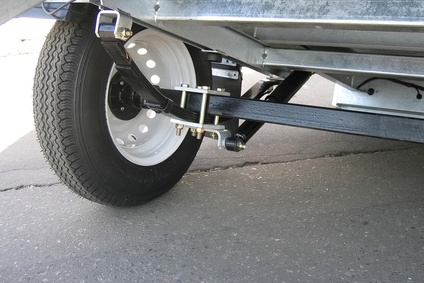
Because trailer tires carry heavy loads, such as boats, livestock and equipment, it's important to ensure they are in proper condition. This includes proper inflation and ensuring that they have adequate tread and are not damaged by age.
From a tread depth perspective, trailer tires do not usually wear out. Tire manufacturers recommend tires be replaced every three or four years, regardless of how many miles have been driven on them or how much tread remains. This is because the structural integrity of trailer tires can be weakened by carrying heavy loads as well as improper storage. According to Discount Tire, in three years, roughly one-third of the tire's strength is gone. The mileage expectation of a trailer tire is 5,000 to 12,000 miles.
Trailer tires are made to carry heavier loads at lower speeds than car tires. They should only be mounted to the axles of trailers because they are designed with stiffer construction to lessen trailer sway and do not have the cornering and handling capabilities of car tires. Trailer tires should be inflated to the maximum pressure indicated on the sidewall when they are being used to carry loads. Always check tire pressure when the tires are cool to the touch because warmer temperatures can result in higher pressure readings.
To make trailer tires last, proper storage is essential. When storing a trailer long-term, put it on blocks to take the weight off the tires. Lower the air pressure, and cover the tires to protect them from direct sunlight if the trailer is being stored outdoors. Ideally, tires should be stored in a cool, dark place. Before each trip, inspect the tires for cuts, bulges or punctures. Always check inflation pressure before towing and again before the return trip.